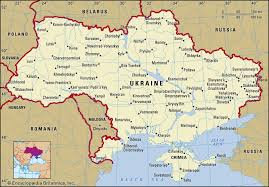
Akintunde Oyedokun
Research Analyst
Oil prices dropped about 2% on Tuesday after reports suggested Ukraine had agreed to a potential peace deal, raising expectations that sanctions on Russia could ease and more oil could re-enter the market. Brent slipped to $62.15 while WTI fell to $57.
Ukraine confirmed progress but noted unresolved issues. Oversupply worries and new sanctions pushing some Indian refiners to cut Russian crude purchases also weighed on sentiment.
India’s Economy Grows 7.3% in Q2
India likely expanded 7.3% in July–September, driven by rural spending and government expenditure, while private investment and urban demand stayed weak. A low deflator, helped by falling inflation, boosted real GDP figures. Economists expect growth to cool to 6.8% this quarter and 6.3% by early 2026.
India remains among the fastest-growing major economies despite global and trade pressures.
German Economy Stalls in Q3 2025, Statistics Office Confirms
Germany’s economy showed no growth in the third quarter of 2025 compared with the previous quarter, the national statistics office confirmed on Tuesday, reaffirming its earlier preliminary estimate. Economic activity remained flat, reflecting ongoing challenges in both domestic demand and industrial output. The stagnation highlights persistent pressures on the country’s economic recovery.
South Africa’s Financial System Remains Resilient
South Africa’s financial system is holding strong despite global tensions and high debt. Local markets have rebounded, with the Johannesburg All-Share Index reaching a record near 114,000 points and bond yields hitting six-year lows. Banking profitability and capital buffers remain solid. While risks like capital outflows, household and SME distress, and cyber threats exist, systemic indicators stay low. The central bank expects financial stability to continue through November 2026.
Nigeria’s Central Bank Holds Rate, Signals Economic Confidence
Nigeria’s central bank kept its main interest rate at 27% to continue curbing inflation, while lowering the deposit rate to encourage lending. Inflation eased to 16.05% in October but remains high. The move signals confidence in economic stability, with measures aimed at boosting lending and sustaining economic recovery. The bank also plans to monitor inflation closely before any future rate adjustments.
Invest 2026 Traders & Investors Summit
Theme: Pre-Election Year Investment Opportunities & Risks
Sub-Topics
- Comprehensive Earnings Guide for Profitable Investing and Trading in 2026, by Mr Peter Sunday Adebola, Managing Director/CEO Edgefield Capital Management Ltd
- Pre-Election Year Rally: How Economic Events & Tax Reforms Fuel Bull Or Bear Cases In 2026, by Mr Teriba Adeboye, MD/CEO, Qualinvest Capital ltd
- NGX Pre-Election Year Performance & Historical Patterns:10 Golden Stocks For Profitably Investing, by Mr Ambrose Omordion, CRO. Investdata Consulting Ltd
- Nigeria Infrastructural Gap & Fiscal Policy Reforms: Where are Investment Opportunities in 2026, by Mr Tope Ojo, Managing Partner, Tope & Tunde Estate Surveyors & Valuers
- Investment Opportunities In The Alternative Markets In 2026 & Beyond, by Dr Sylvester Anaba (PhD, FCS) Head Research, United Capital Plc
- The Pre-election Economy & 2016 Budget: Implementation and Impact On NGX, by Mr Abiola Rasaq, Former Head, Investor Relations & Portfolio Investments United Bank For Africa Plc
- NGX New Highs & Correction: The Power Of Price Action, Time & Momentum In Profitable Trading In 2026 & Beyound, by Mr Abdul-Rasheed Oshoma Momoh, ED Operations, TRW Stockbrokers Ltd
- Strategies For Equity Investing & Trading In A Pre-Election Year, by Mr Kebira Jimoh Aruna, MD/CEO GlobalView Capital Ltd
Riding the tide of pre- election Years in Nigeria, 2026 is not just any year—it’s part of a powerful historical trend or pattern that should be known to smart traders or discerning investors in any investment window, market or exchange in Nigeria today. It comes with tradable opportunities and risks that are associated with elections and post-elections. The ability to navigate between politics and economy creates the wealth to makes the difference in your investment. The reading of a nation’s electoral cycle and how investors perceive whether there could be a change in leadership or continuity, is a major factor that results in much of the uncertainty in pre-election years have been known for. This, it is believed can, and does spike market volatility and businesses, especially when it is seen that a new party may take power. This summit will help market players to navigate 2026 profitably by maximizing gains and minimize losses
Take away from this summit includes:
How to construct a resilient and Powerful Portfolio that adapts to market and economic changes.
● What to expect from the market and economy as the new tax reforms kicks off in 2026.
● Why historical patterns and trends in Nigerian election cycle is important when taking your investment decision in 2026 and beyond.
● The power of liquidity and corporate earnings in price movement.
● How to anticipate big sector moves and recovery in 2026 with ongoing reforms
● Understanding the cycle of 4 years opportunities time frames that comes with election preparation in Nigeria
● 10 golden stocks for 2026
Date: December 6, 2025
Fee: N75,000
Venue: Zoom
If you want to be among the winning investors and traders in 2026, send Yes to: 08028164085, or 08179547605 now.










